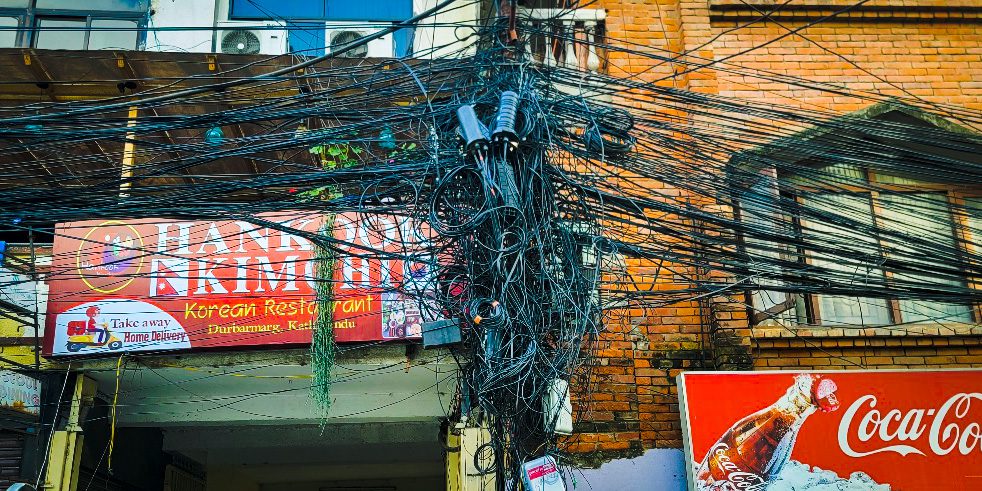View by Topic
Recent Articles
-
Congress Blocks California’s Gasoline Car BanSaturday, May 31st, 2025
-
EPA Will Keep Current Limits for “Forever Chemicals” in Drinking WaterSaturday, May 24th, 2025
-
Court Indefinitely Pauses SEC Climate Rule LitigationSaturday, May 17th, 2025
-
Maryland is About to Regulate Mold But is the Cart Before the HorseSaturday, May 10th, 2025
View by Month/Year
“Green Building Law Update” Headlines
Recent Articles & News from
Stuart Kaplow’s blog
at GreenBuildingLawUpdate.com
- Congress Blocks California’s Gasoline Car Ban: A Legal and Policy Analysis June 1, 2025
- EPA Will Keep Current Limits for “Forever Chemicals” in Drinking Water May 25, 2025
- Court Indefinitely Pauses SEC Climate Rule Litigation May 18, 2025
- Maryland is About to Regulate Mold: But is the Cart Before the Horse? May 11, 2025
Subscribe to the Green Building Law Update!
Stuart Kaplow brings his expertise and extensive experience to the table with his unique digital publication, "Green Building Law Update". Subscribers receive regular updates to keep them informed about important issues surrounding Environmental Law, Green Building & Real Estate Law, as well as the emerging demand for Environmental Social Governance (ESG).
Get fresh content through the lense of Stuart Kaplow's cutting-edge expertise, innovative commentary and insider perspective. Don't miss another issue! Subscribe below.

2024 IECC is Final After Addressing Preemption Issues
On March 18, 2024, the International Code Council Board of Directors voted to affirm in part and reject in part nine appeals filed by five appellants to a draft of the commercial and residential editions of the 2024 International Energy Conservation Code. The Board expressly addressed concerns that aspects of the draft 2024 IECC codes were preempted by the federal Energy Policy and Conservation Act under the Supremacy Clause of the U.S. Constitution.
Of course, it is 2024 so there were the usual cast of climate change doomsayers who took to social media, to deride the vote by the ICC as the end of the world, but to many, they sound like the boy who cried apocalypse. I have been enjoying the Carl’s Jr, “End of the Word” hamburger since 2012, and environmental groups have been monetizing the apocalypse since “An Inconvenient Truth” was still a slide show in 1989, so doomsday porn aside, the 2024 IECC is now final and the greater concern might be the coming of the Four Horsemen of the Apocalypse.
The International Code Council is a private nongovernmental organization established in 1994 to develop a single set of national model construction codes. It brought together three different organizations that had developed three separate sets of model codes throughout the country: Building Officials and Code Administrators International, Inc. (BOCA), International Conference of Building Officials (ICBO), and Southern Building Code Congress International, Inc. (SBCCI). ICC codes are approved through a triennial process although the process for the 2024 IECC was changed from previous iterations of the IECC, using a procedure previously utilized for adopting ‘standards’ but not codes.
The Appeals
Following its own public hearing, the ICC Board determined that the scope and intent governing the 2024 IECC prohibited the inclusion of measures that did not directly affect building energy conservation within the base of the draft 2024 IECC, as the intent of both the commercial and residential 2024 IECC codes is limited to “providing minimum efficiency requirements for buildings that result in the maximum level of energy efficiency that is safe, technologically feasible, and life cycle cost effective considering economic feasibility, including potential costs and saving for consumers and building owners, and return on investment.” The Board further determined that alternative measures, including measures without direct impacts on building energy conservation, but that may reduce greenhouse gas emissions, could be included as an appendix given the intent of both the residential and commercial IECC codes provides that “[t]he code may include nonmandatory appendices incorporating additional energy efficiency and greenhouse gas reduction resources.”
Accordingly, the Board resolved to move several of the challenged provisions to an appendix:
- Sections C406.1.1.1 and C502.3.7.1 (heat pump products)
- Sections C403.4.6, C404.10, C405.2.8, R403.5.4 and N1103.5.4 (demand response)
- Sections C405.14, R404.7, and N1104.7 (electric vehicle charging infrastructure)
- Section C405.16 (electrical energy storage system readiness)
- Sections R404.6 and N1104.6 (solar readiness)
- Sections R404.5 and N1104.5 (electric readiness)
Preemption
The Board also specifically considered concerns that provisions in the draft IECC codes were preempted by the federal Energy Policy and Conservation Act. Where the Board determined there was a significant risk of preemption, it decided to move those provisions to a resource with a cautionary note regarding the risk of preemption:
- Appendix CG (all-electric commercial) and Appendix RE (all-electric residential): moved to resource due to significant risk of preemption based on recent cases
- Appendix CD Section CD101.1 and Table CD101.1 (prescriptive glide path to net zero): moved to resource due to significant risk of preemption based on an inability to comply with minimum efficiency equipment
- Appendix RG (glide path to net zero): retained as an appendix with a cautionary note regarding the limited compliance options for minimum efficiency equipment in specific climate zones
Finalization of the 2024 IECC
The Board’s determinations mark the conclusion of the 2024 IECC development process. The residential and commercial codes are now final.
Of import, the 2024 IECC builds on the 2021 edition and is anticipated to improve energy efficiency by roughly 6.5% for residential buildings and by 10% for commercial buildings.
Huge Implications
This is a big deal because versions of the IECC are in use or have been adopted in 48 states (.. although adoption of the latest 2021 version, in the 3 year cycle, was only by 5 states) because wide earlier adoption was a prerequisite for access to Federal grants in aid.
In states like Maryland where the Maryland Building Performance Standards, require each local jurisdiction to adopt the IECC, but “may not adopt any amendments that weaken the requirements of the IECC” the implications of this action by the ICC Board are dramatic; saving the entire state from mandatory all electric commercial and residential building codes which would have had the effect of banning natural gas and ultimately determined to be “without effect” as preempted by federal law. Of course, Maryland and other jurisdictions could still incorporate additional greenhouse gas reduction measures, electrical vehicle charging infrastructure, energy storage systems, electric readiness, and demand responsive controls; although such is not expected and any such state would be a regulatory outlier.
__________________
Join us for our upcoming Strafford live webinar, “Greenhouse Gas Emission Laws Now Impact Commercial Leases” on Thursday, May 2, at 1 pm ET. Click this link for more information.









